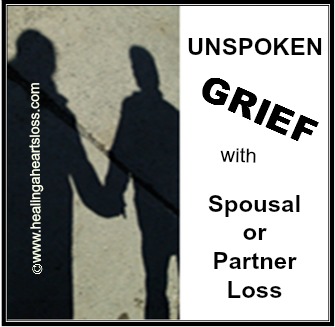Imagine not being able to talk about or share your grief with others. Depending on the relationship and the family dynamics, sharing a loss is not always possible. How sad is this, especially when one of the ways to heal from a loss is by sharing your story and being with others who express grief for the same person.
I know this may be a contentious issue for some people, but I want to express this view of grief, because sometimes, when we are in the midst of our own emotional pain, we neglect to take a deeper look at those around us.
There have been numerous times when I have heard the stories of those who have been omitted from honouring the person, they loved the most, because some other family members disapproved or did not acknowledge the relationship.
Some partners in non-traditional relationships may feel disconnected from other mourners.
When a partner dies, we may assume the partner is in charge of the funeral arrangements and is a part of the family grieving process, but this is not always the case. I am not going to debate the “who is in charge scenario”. I am going to address the grief component of the partner, no matter how this partner is viewed by others or who the partner is.
The grief experienced by a partner who is not accepted or allowed to grieve and express their loss with others can be magnified and more disturbing. Consider the injustice, unfairness, disbelief or perhaps the fact that no one knows about this partner can cause great distress for the silent griever.
The term disenfranchised grief is used to describe grief not able to be shared with others. Morally, who are we to decide who is acceptable enough to be validated as a griever in any particular situation? Oh, I know there are many who disagree with this comment, but what if it was you being pushed aside?
For the individual who is the silent griever, you have a human right to grieve. Seek support systems away from those who do not acknowledge your grief. Speak with individuals on a crisis line if necessary. Most important, do not disenfranchise yourself from the grief process.
“Although our world is full of suffering,
it is full also of the overcoming of it.”
— Helen Keller
All my best,
Barbara Gillett Saunders
Grief Counsellor/Thanatologist

